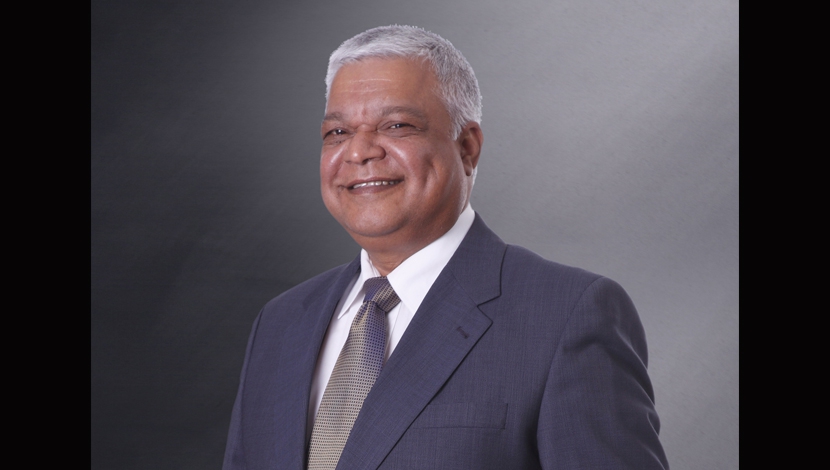
With the South African construction industry remaining under
pressure and in a state of accelerated decline, the need to contain costs
continues and correct specification of construction materials remains
critical.
Construction materials company AfriSam construction materials executive Avi Bhoora
says there are two levels of cost containment.
The first focuses on business consolidation and
market survival initiatives, while the second involves the affordability
of construction materials, owing to
evolving specifications.
Bhoora laments the increasing use of low-quality materials in construction projects, which leads to either early
failure or increased maintenance, or both.
“The industry is under pressure in terms of maintenance and not being able to
afford proper corrective inputs. Some industry members end up doing something
as a temporary repair,” he elaborates, citing the country’s deteriorating road infrastructure as an example.
In having a “responsible player attitude”, which speaks to AfriSam’s solid record and quality assurance guarantee, Bhoora
says the company’s construction materials are
ISO9001:2015-certified. Also, the company’s aggregates and ready-mix products are accredited by Aspasa
and SARMA.
“Such a commitment to quality provides clients and consumers with the
confidence that the products have longevity, and
could prevent early failures, with lower maintenance costs in the long
term.”
Despite the industry’s challenges, Bhoora remains hopeful that the construction industry is at the end
of the downward cycle.
With positive outcomes expected following the national elections, he
believes that South Africa can expect to see
confidence levels improving once some of the country’s issues have been
addressed.
While government is cognisant of the issues that plague the construction industry, Bhoora says
to address national issues, such as unemployment and low economic growth,
government and industry will first need to resolve political concerns to
provide political certainty while addressing policy uncertainty.
The sector is heavily reliant on political and policy certainty, which
ultimately impacts on infrastructure investment in the long term,
he adds.
Additionally, Bhoora says the industry is a good “barometer” of how the
economy is faring.
When faced with adversity such as that which exists in the current environment, Bhoora says the industry
needs to consolidate, improve efficiency, reduce waste and stay relevant to
the changing environment.
He believes that addressing the issues that the sector faces will create
a snowball effect, leading to increased infrastructure projects and increased
employment, housing and consumer goods
through an economic multiplier effect.
Bhoora laments that skills development and technical knowledge remain a
concern, especially for small and medium-sized companies, adding that the
country’s embattled economy has driven a multitude of skilled and trained
people to apply their trades in other countries.
“The real struggle, however, touches on the loss of experience that this
causes in the industry. Knowledge on its own is not sufficient – we need
intellect, which [can be] gained through experience to go with that.”
He highlights that, to address this, AfriSam is committed to the in-house development of
people and skills, and can assist small and medium-sized construction companies with regard
to tendering and quoting processes, and advise on the correct products to use in specific
applications.
While the country’s transformation agenda plays a role, AfriSam is focusing on complementary businesses in terms
of assisting the overall industry, Bhoora adds.
AfriSam has dedicated resources that work with small
and medium-sized companies to improve their skills and their potential for
doing business. AfriSam then harnesses this potential while working with
these companies to build future partnerships.
“We have embraced a lot of smaller clients and our big focus in the past
two years has been on trying to grow our cash-sales market,” he says.
This approach has enabled the company to increase its supply network to about 40 ready-mix companies nationally, 16 aggregate quarries, two cement manufacturing plants and 12 distribution centres nationally. https://www.engineeringnews.co.za/article/embattled-sector-necessitates-cost-containment-measures-afrisam-2019-05-24
More news
- CELEBRATING EXCELLENCE IN THE RESIDENTIAL PROPERTY SECTOR
- PART 4: GIBS PANEL DISCUSSES INTEMEDIATE CITIES ROLE IN AFRICA’S DEVELOPMENT
- EXPOSED AGGREGATE PAVERS COMPLEMENT NEW LIFESTYLE CENTRE
- GIBS PANEL EXPLORES ROLE OF INTERMEDIATE CITIES IN SA’S DEVELOPMENT PART 3
- CITI-CON’S CONCRETE KNOWLEDGE SUCCESSFULLY DEPLOYED ON NEW LANDMARK DEVELOPMENT

